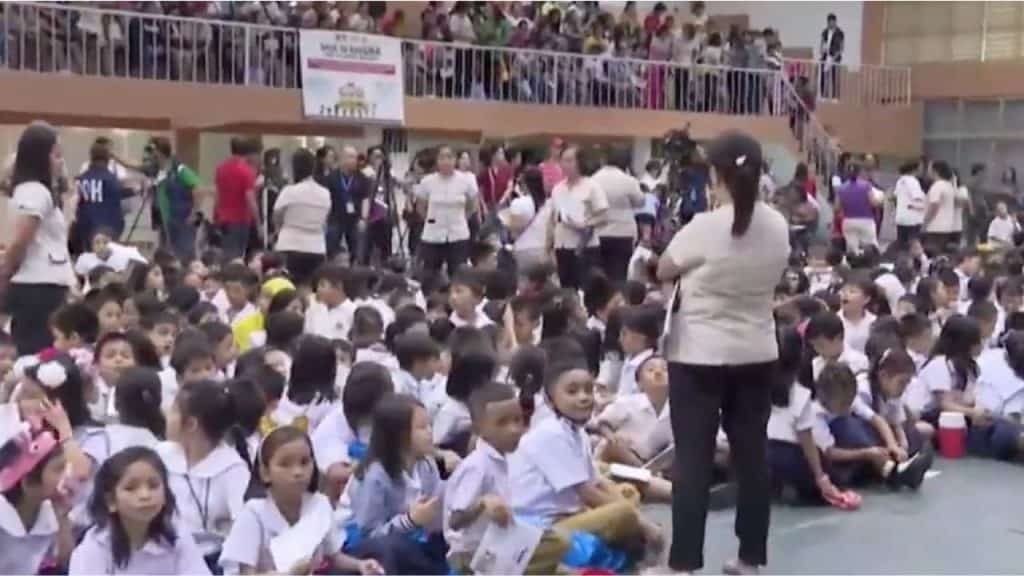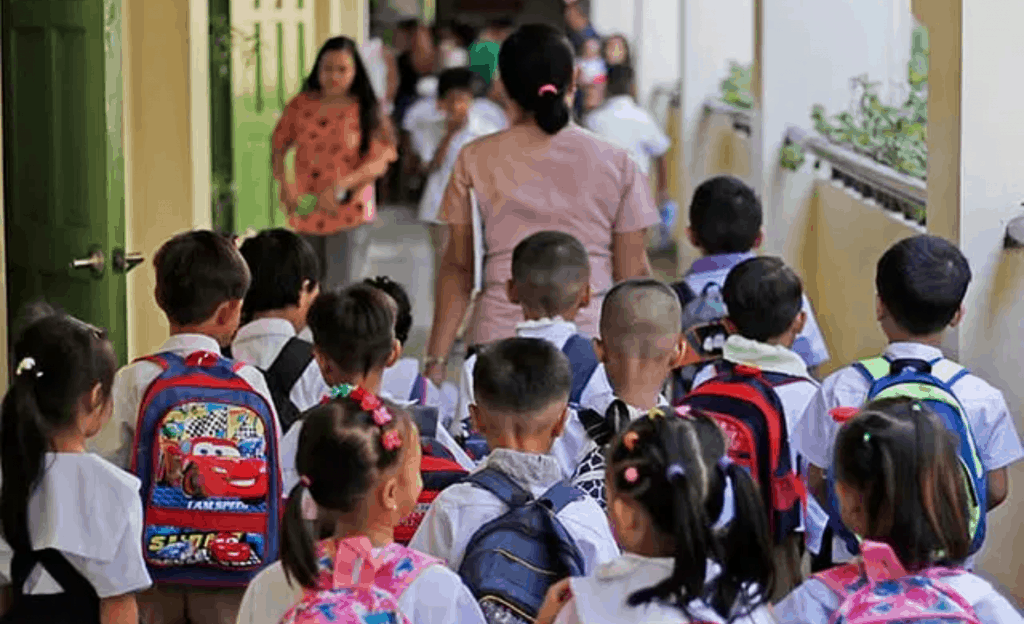The Philippine Business for Education (PBEd) suggests that the “unofficial” practice of mass advancement leads to poor learning outcomes, as students merely advance through the school system without truly acquiring essential knowledge and skills. PBEd’s recent report maintains that such practices compromise the strength of our educational foundation and consequently weaken the global competitiveness of our workforce.
PBEd Executive Director, Justine Raagas, voiced her concerns during the unveiling of the group’s 2023 State of Education Report, highlighting how this practice ultimately stifles innovation, productivity, and economic growth, limiting the national potential for progress and prosperity.
The report was produced based on discussions with more than 300 stakeholders across the nation. Participants consisted of teachers and school leaders (45%), government officials (24%), parents (14%), students (12%), and industry experts (4%).

Raagas observed a widespread misinterpretation of the “No child left behind” principle, leading to the literal practice of promoting students to higher grades irrespective of their competency levels.
The notion of mass advancement, Raagas stated, is not an official policy of the Department of Education (DepEd) but is culturally and administratively entrenched in the educational system. This practice often results in false correlations between student outcomes and performance-based rewards for teachers or school ranking.
This misconnection indirectly coerces teachers to promote students to the next grade level despite their academic proficiency. Raagas cited anecdotal accounts of students openly ignoring their school work, secure in the knowledge that they would advance regardless of their performance.
Related: LGBTQIA+ – friendly restroom sa Cordillera, aprubado!
Notably, this practice has led not only to students failing to master basic fundamentals such as reading, writing, and numeracy but also to behavioral issues due to the absence of fundamental values such as hard work, resilience, teamwork, and respect.
While the DepEd maintains that it adheres to a “performance-based grading system,” Raagas urged establishing an independent assessment agency. Currently, the evaluation of DepEd results is conducted by the DepEd itself. This lack of external evaluation can lead to discrepancies in assessing students’ readiness to advance to the next academic level.
Moreover, the need for appropriate intervention measures and accurate evaluations makes it difficult to address the issue.
The PBEd report emphasized the need for effective evaluation mechanisms promoting merit-based progression and ensuring that students possess the necessary skills to move to the next grade level and ultimately secure employment.
The current situation calls for a serious reconsideration of our educational practices to ensure that our students are well-equipped for the future and that our nation continues to progress.
“Mass Advancement” – Is it working?
The Philippine education system’s unofficial practice of “mass advancement” — advancing students through the school system regardless of their competency — stirs up a complex debate. On one hand, it can be seen as an act of compassion, allowing students who may face educational barriers or challenges to continue progressing with their peers. This can avoid potential social stigmatization and contribute to the student’s overall emotional well-being.
However, the practice of mass advancement, while compassionate in intent, may not ultimately be in the best interest of the students and quality education. It risks undermining the learning process and devalues the fundamental skills and competencies students should gain at each grade level.
Students may advance through grades without fully understanding the material, leaving them ill-equipped for subsequent coursework and their future endeavors. Moreover, it may unintentionally encourage a lackadaisical attitude toward studies, as students might presume progression regardless of their effort or mastery.

Quality education is underpinned by a system that ensures students have truly comprehended and mastered the skills needed before moving on to more complex topics. If students are merely promoted without these essential skills, they could face significant challenges down the line.
Addressing this issue requires a balanced approach that incorporates compassion while still ensuring that students attain the necessary competencies. Such measures may include targeted support for students who are struggling, additional resources, remedial classes, and a shift toward performance-based promotion.
While the motive behind mass advancement may be empathetic, ensuring quality education requires more than just advancing students through the grades. It requires a comprehensive approach that prioritizes genuine learning, skill acquisition, and the provision of necessary support for those struggling, thus ensuring that every student is truly prepared to advance.
Read more: Summer break posibleng ibalik sa dating Abril at Mayo


